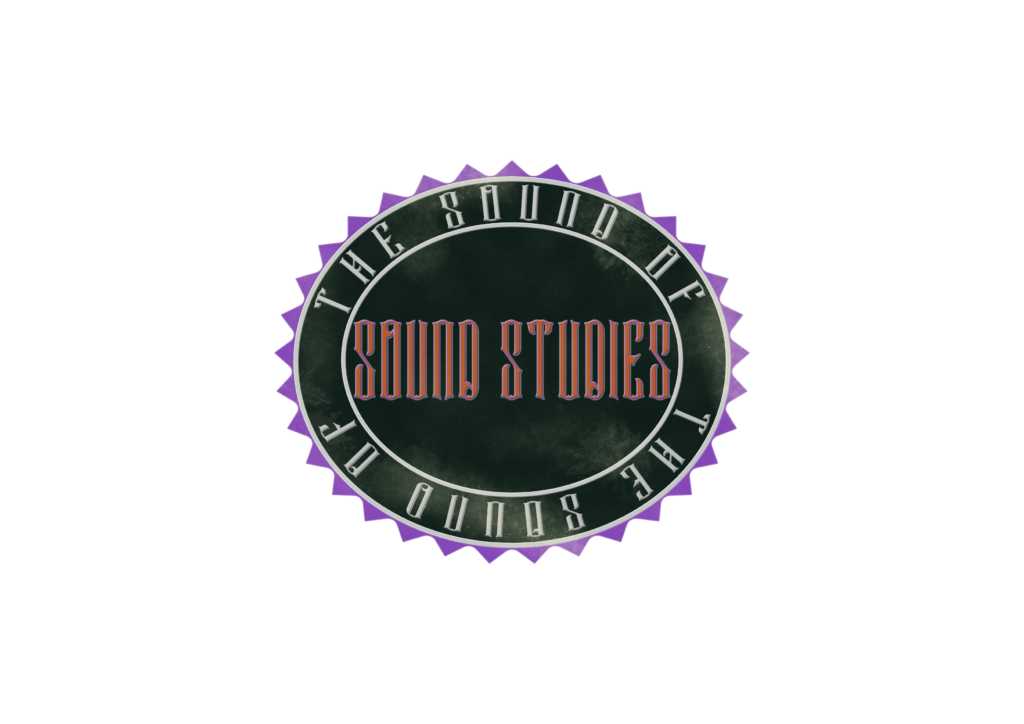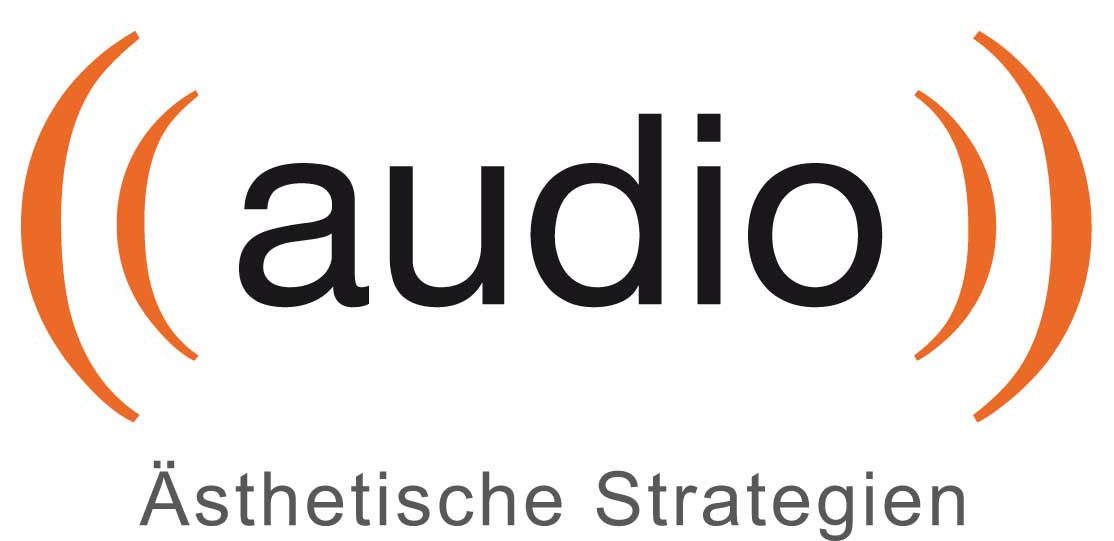Current flows in sonic research and sound culture?
From the 4th to the 6th of March 2021, ((audio)) will host the annual conference of the AG Auditive Kultur & Sound Studies of the Gesellschaft für Medienwissenschaft.

A unique sound has always been ›genre-defining‹. For instance, in 1988, a simple record cover proclaimed techno as the ›New Dance Sound of Detroit‹, giving this sound its own logo. Academic genres and disciplines are created in a similar way: a few appropriately captioned essays (i.e., Pinch/Bijsterveld 2004; Hilmes 2005), a small number of canonising anthologies (i.e. Bull/Back 2003; Cox/Warner 2004) – and the Sound Studies were born.
The goal of this proto-discipline was to bring the dimension of ›sound‹ as a legitimate subject-matter into the focus of researchers. This had – according to the verdict – simply been overlooked too many times by Musicology and Cultural Studies, but also Technical and Social Sciences. But what ›sound‹ would actually mean – an auditory experience or a physical wave phenomenon – is by no means agreed upon. Especially since the deliberately vague Anglicism in the German-speaking discourse (›Sound Studies‹ does not have a German translation) brings with it a whole new range of possible analogies from the auditory to the sonic. In The Audible Past (Sterne 2003) the meaning of ›sound‹ is different than in Sonic Skills (Bijsterveld 2019), and in The Sound of Culture, it means something different than in Transcultural Sound Practices (Maier 2020) – besides, what would Sonic Fictions (Eshun 1998, Schulze 2020) be?
So when the 2021 AG conference looks for the specific Sound of Sound Studies, we want to provide a space for the discussions on the various self-conceptions and subjects and on the multitude of methods and research approaches, which are currently kept together academically under this ›genre-defining‹ title. Its wide opening for new objects of study and specifically ›sonic‹ methods of working is fully reflected in the concept of sound.
Against this backdrop we want to talk about the current sound of the name Sound Studies as part of the ensemble of academic discourses. What do these ›Studies‹ sound like today: how has their project changed the way science speaks about sound (and more)? Which methodological reorientations resonate in their sound? What do possible futures of the sciences of music and sound look like?
We are looking forward to suggestions for topics from the whole range of Sound Studies, Musicology, Media and Cultural Studies, Technology Sciences etc.
In accordance with the conference topic, we expect all contributions to develop their arguments using sound examples and phenomena. As a result, contributions that do not explicitly make use of sound material cannot be considered.
Student Panel
The conference specifically asks for the concept of Sound in Sound Studies, for methods and approaches to researching and thinking about sound. An integrated assessment of the current state of research in Sound Studies and a glance into its futures is inconceivable without the voices of students. Therefore, the conference will (again) feature a Student Panel. However, rather than a scientific stock-taking, its aim is to be a space for sound-specific approaches, that not only conduct research on sound, but rather with, through and in sound.
The format as well as content of the presentations can be chosen freely by the speakers. We also welcome unfinished projects and (sound-)experiments. For instance, possible topics range around the discourses surrounding materiality, instrumentality, genre definitions, dislocated sound spaces, practices of sound and music production etc.
Literature
- Bijsterveld, Karin (2019): Sonic Skills. Listening for Knowledge in Science, Medicine and Engineering (1920s–Present). London: Palgrave Macmillan.
- Bull, Michael; Back, Les (Hg.) (2003): The Auditory Culture Reader. Oxford: Berg.
- Chude-Sokei, Louis (2016): The Sound of Culture. Diaspora and Black Technopoetics. Middletown: Wesleyan University Press.
- Cox, Christoph/Warner, Daniel (Hg.) (2004): Audio Culture. Readings in Modern Music. New York: Continuum.
- Eshun, Kodwo (1998): More Brilliant than the Sun. Adventures in Sonic Fiction. London: Quartet Books.
- Hilmes, Michele (2005): »Is There a Field Called Sound Culture Studies? And Does It Matter?« In: American Quarterly, 57 (1). S. 249-259.
- Maier, Carla (2020): Transcultural Sound Practices. British Asian Dance Music as Cultu‐ ral Transformation. New York: Bloomsbury.
- Pinch, Trevor/Bijsterveld, Karin (2004): »Sound Studies : New Technologies and Music«. In: Social Studies of Science, 34 (5). S. 635-648.
- Schulze, Holger (2020): Sonic Fiction. New York: Bloomsbury.
- Sterne, Jonathan (2003): The audible past: Cultural origins of sound reproduction. Durham, NC: Duke Univ. Press.
Format of contributions
In accordance with the thematic openness of the call we invite you to suggest formats differing from classic conference presentations. We look forward to audio-papers and sound-lectures, as well as workshop-oriented, experimental formats.
Submission
Please submit your abstract (max. 1 1⁄2 pages, incl. short specification of personal details and intended sound examples) for the Student Panel as well as the general program to soundofsoundstudies@llaudioll.de. The abstracts should also mention the planned format of the contribution. Submission deadline is 15th Nov. 2020.
Organisation
Currently, we are still planning the conference as an in-person event and hope that such a meeting will be possible in the approximate setting of our previous AG conferences next year. But due to the unforeseeable nature of the Corona pandemic we will also develop an online format. In any case, we would like to provide other options to all who are interested but cannot attend in person.
Travel expenses
For contributing students and such speakers who do not belong to an institution we intend to provide a travelling allowance.
Conference language
The general conference language is German. However, we welcome all contributions in English and want to facilitate an active participation for non-German attendees too.
((audio)) aesthetic strategies,
Leuphana University Lüneburg
Rolf Großmann
Malte Pelleter
Student Panel
Lukas Iden
Magdalena Lanman Niese
Lucas Schröder
Sophia Tobis
AG Auditive Kultur und Sound Studies
in the Gesellschaft für Medienwissenschaft
Ania Mauruschat
Anna Schürmer
